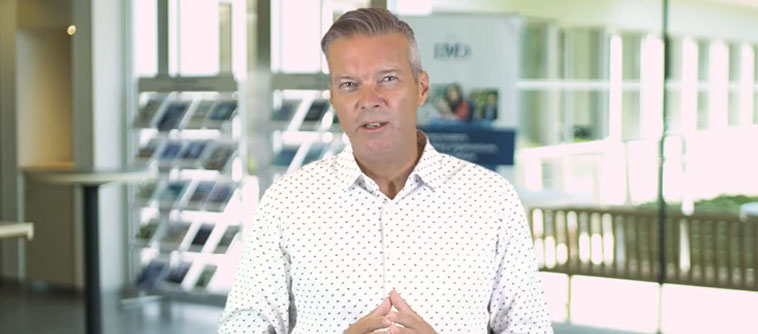Does your company float like a butterfly and sting like a bee? Does your organization take a licking and keep on ticking?
Some companies have indeed remained in the ring despite the challenges brought on by COVID-19. More than a hundred have added $1billion in market capitalization since January 2020. But how did Apple, Amazon and Microsoft – to name just a few – manage to do this despite a global economic meltdown and deepening recession?
Whether your team is an agile dancer in boxing gloves like Mohammed Ali or a robust strongman like George Foreman, resilience is the key to thriving during a crisis. As companies turn to survival mode, IMD Professor of AI, Analytics and Marketing Strategy Amit Joshi and IMD Professor of Digital Transformation Michael Wade believe that companies, just like boxers, can learn to outperform their competitors and truly thrive, no matter what punches are pulled.
Professors Joshi and Wade have identified a set of principles that underpin this hyper-resiliency. These principles are not definitions, rules, laws, tools or frameworks, but rather guidelines to set up, organize and operate organizations in volatile environments.
The nine principles of hyper-resilience
Hyper-resilience is a combination of nimbleness, robustness and resilience. Each of these traits is then made up of three characteristic behaviors.
Nimbleness
This is the ability to be fast-moving, flexible and aware. Nimble companies anticipate and avoid obstacles, preventing lasting damage.
“Nimble organizations prioritize speed over perfection,” says Professor Wade, “When trade-offs need to be made between the quality of an output and the speed of delivery, speed takes precedence.”
The same goes for strategic agility over strategic planning, and by refusing to lock in resources and remaining ready to distribute them when and where necessary, mobility is also favored.
Robustness
A robust company can withstand shocks and blows, just like a solid boxer. The balance of efficiency and slack is prioritized over efficiency alone, and empowerment trumps hierarchy. If there is no slack, then a blow to one part of the organizational can be felt across the organization, such as the disastrous impact of COVID-19 on lean supply chains.
“Rather than specialize too much, companies should be able to shift to new priorities when market dynamics change,” says Professor Joshi.
More, varied opinions tend to overcome biases and complacency.
Resilience
This is the ability to bounce back quickly and return stronger from setbacks.
“The best boxers – Muhammed Ali, Joe Frazier and George Foreman – were always able to get back in the ring despite being knocked down,” says Professor Wade. “Your company must do the same.”
Professor Joshi adds: “Forget the blame game, you must learn to forgive instead. And by continuing to learn instead of insisting you know it all, you remain open to new possibilities.”
Resilient organizations also prioritize resource modularity over resource specificity – this means they should be sharable, and “smart standardized” resources should be encouraged.
While companies won’t all survive – much less thrive – in the coming months, those that focus on nimbleness, robustness and resilience will be ahead of the game.
“Uncertain times though they are, the willingness to challenge assumptions and evolve when necessary will keep companies in their corner instead of down for the count,” concludes Professor Wade.
IMD Professor of AI, Analytics and Marketing Strategy Amit Joshi and IMD Professor of Digital Transformation Michael Wade are leading a session on hyper-resilience at OWP liVe in November. Join IMD Professor Michael Wade for a complimentary mini-masterclass and information session here.


